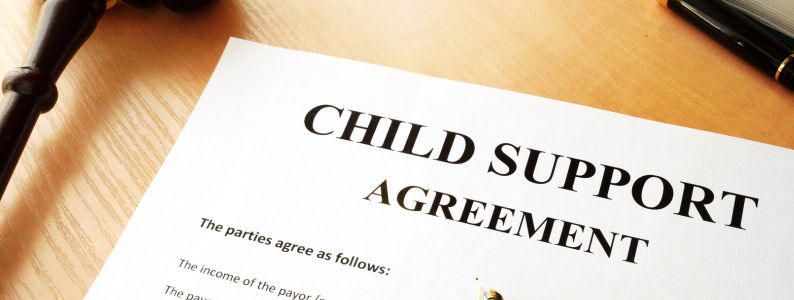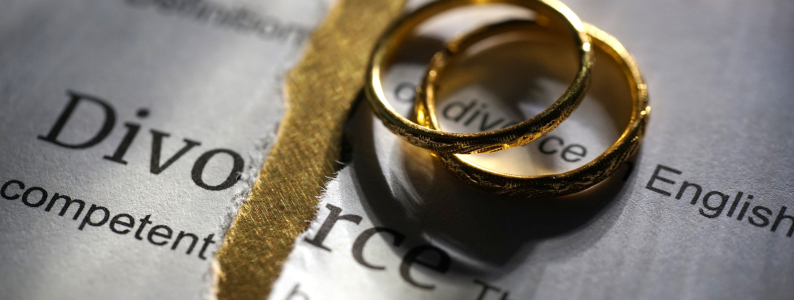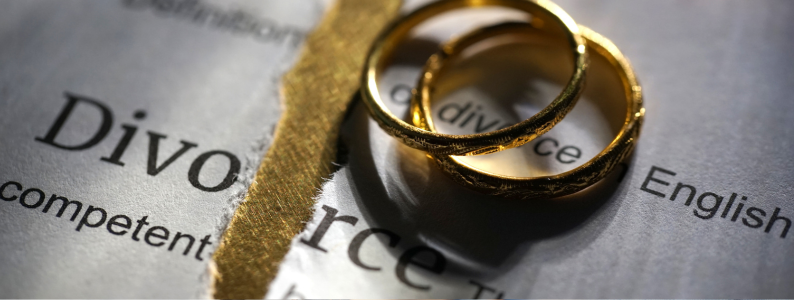What Your Lawyers Aren’t Telling You About Cryptocurrency And Divorce
Cryptocurrency has moved from niche curiosity to a mainstream financial reality. Whether held as an investment, used for business, or received as payment, digital assets now appear on more balance sheets and in more divorce filings.
For couples navigating the end of a marriage, crypto introduces unique legal, valuation, tax, and enforcement challenges.
This guide explains what you need to know in 2025: how courts are treating crypto, practical steps for preserving your rights, important tax and regulatory updates, and how Masters Law Group can help protect your interests.
Why Crypto Matters in Divorce
Cryptocurrencies, bitcoin, Ethereum, stablecoins, tokens, and even NFTs are usually treated as property for legal and tax purposes. That means they’re potentially divisible marital assets, subject to disclosure and distribution under state laws governing equitable distribution or community property. Yet unlike a bank account or a house, crypto’s features (pseudonymous wallets, self-custody, rapid price swings, and cross-border exchanges) make discovery, valuation, and enforcement more complicated. Courts and practitioners increasingly must adapt traditional asset-division tools to this new asset class.
Four Practical Challenges Unique to Crypto
- Disclosure and hidden holdings: Crypto can be moved quickly, split across many wallets, or stored on offshore platforms. One spouse may overlook (or intentionally hide) holdings, send assets to friends, or convert crypto to fiat before trial. Full, early disclosure is essential, and forensic accountants or blockchain tracing tools are becoming standard in contested cases.
- Valuation volatility and timing: Crypto prices can swing dramatically in short periods. Parties and the court must agree on a valuation date and method (e.g., market price at petition date, trial date, or an average over a period). Clear contract language in settlements about valuation and future price movements helps avoid later disputes.
- Tracing and commingling: If one spouse used marital funds to purchase crypto and later transferred it to a separate wallet, courts will look at tracing rules to determine whether the asset remains marital or has become separate. Commingling crypto with jointly owned funds (for example, transferring crypto into a joint account or spending jointly) can complicate the analysis.
- Custody of private keys and enforceability: The person who controls the private keys effectively controls the asset. Even after a court orders distribution, enforcing that order can be tough if the holder refuses to cooperate or deletes keys. Solutions include supervised transfers, escrow arrangements, requiring exchanges to freeze accounts when possible, or awarding equivalent value in other assets. Law firms increasingly draft very specific division instructions (wallet addresses, transfer steps, timing) into settlement documents to make orders enforceable.
Recent Regulatory and Economic Context (2024–2025): Why it Matters to Divorce Cases
Crypto’s legal and tax landscape has evolved rapidly, and divorce practitioners must factor these changes into planning and settlement drafting.
Tax and reporting developments. The IRS continues to treat virtual currency as property; taxpayers must report transactions and income from digital assets. Recent IRS guidance and updates have emphasized reporting obligations and clarified treatments for things like hard forks and staking income. Moreover, increased reporting by exchanges (including new reporting frameworks implemented since 2024–2025) means tax authorities have better visibility into accounts, which also makes it easier for the spouse seeking disclosure to obtain evidence.
Regulatory momentum. In 2025, the SEC and other U.S. agencies have been active in staking out regulatory boundaries for digital assets, releasing staff statements and plans to clarify which crypto activities fall inside securities regulation and which do not. Those rulemaking and enforcement efforts affect market infrastructure (custody, exchanges, staking services) and, therefore, the tools available to enforce divorce orders. For example, clearer standards for regulated custodians mean parties may prefer placing crypto with regulated custodians to make future enforcement easier.
Macro adoption and market trends. Mainstream adoption by institutions, growing consumer interest, and ongoing integration of crypto into corporate treasuries and platform rewards have increased the prevalence of crypto in household portfolios. That broadening adoption means more divorces will involve digital assets in one form or another, and courts are seeing more cases addressing how to treat them.
Valuation: Best Practices for Courts and Practitioners
Because price volatility is a major issue, valuation needs to be deliberate:
- Agree upfront on a valuation date and source: Parties commonly use a market close price from a major exchange on a specific UTC date/time, or an average price over several days to smooth volatility. Specify which exchange or data provider is authoritative in your agreement.
- Document the source wallet and transaction history: Settlement language should identify wallet addresses, exchange accounts, and transaction IDs. This can help reduce ambiguity when transfers occur later.
- Use qualified experts: If valuation is contested, blockchain forensic specialists and experienced valuation professionals can trace assets, determine acquisition dates and cost basis, and recommend fair valuation methods.
- Plan for tax consequences: Remember that transfers can create taxable events. A “transfer” to satisfy a divorce award may be treated differently for tax purposes depending on whether it’s part of a divorce settlement or a property transfer incident to divorce, and whether it triggers recognition of gain.
Tax Consequences: What to Watch For
The IRS treats cryptocurrency as property, meaning capital gains taxes can apply when crypto is sold or otherwise disposed of. Important considerations in divorce:
- Transfers incident to divorce: Historically, transfers of property between former spouses incident to divorce could be non-taxable events under certain Code provisions, but tax treatment can be nuanced with digital assets. Confirm current IRS guidance and, when possible, structure transfers to avoid unexpected tax consequences.
- Cost basis tracking: Accurate, wallet-by-wallet cost basis tracking matters, especially after 2025 changes requiring stricter reporting and tracking of digital-asset transactions. If parties agree to divide future proceeds from crypto sales, remember to allocate cost basis and recognition of gains/losses in settlement documents.
- Staking, forks, and “earn” programs: Income from staking, hard forks, airdrops, or interest-like programs can generate taxable income that should be reported and allocated between spouses where appropriate. Recent IRS rulings have addressed some of these events, but practitioners must stay current.
Discovery and Forensic Tools: How to Find Hidden Crypto
If one spouse suspects undisclosed crypto, the following tools and legal strategies can help:
- Subpoenas and third-party discovery: Request records from exchanges, payment processors, and custodians. Improved reporting requirements and exchanges’ obligations make this route more fruitful than in the early crypto years.
- Blockchain analytics: Blockchain tracing firms can follow on-chain movements, link addresses to known exchanges, and sometimes identify off-chain relationships. Combined with subpoena power, tracing can reveal conversion to fiat or transfers to third parties.
- Narrowly drafted interrogatories and asset searches: Ask for detailed statements about wallets, private keys, and related digital assets (NFTs, tokens, DeFi positions).
- Forensic accountants: They can reconcile on-chain and off-chain activity, identify patterns of concealment, and estimate present-day value at agreed valuation dates.
Practical Division Options Courts Use
There is no one-size-fits-all. Common approaches include:
- In-kind division: Transferring specified tokens or NFTs to the receiving spouse’s wallet. This requires cooperation to transfer private keys or use custodial escrow.
- Buy-out: One spouse keeps the crypto and compensates the other with equivalent value in cash or other assets. This avoids key-transfer headaches but raises valuation and tax questions.
- Phased transfer: To manage volatility, parties may use a phased schedule (e.g., a portion transferred immediately and the remainder over time) with clauses to rebalance if significant price moves occur.
- Escrow or court-supervised transfer: Using a neutral custodian or escrow to enforce transfers and verify completion.
- Alternative equivalent award: Awarding non-crypto assets equal to the crypto’s value, sidestepping custody problems.
Settlement documents should be extremely detailed, include wallet addresses, exact token amounts, transfer windows, verified steps for key transfer, and remedies for noncompliance (e.g., contempt, sanctions, or awarding equivalent value). Recent practice shows courts favor specific, enforceable mechanisms rather than vague promises.
Enforcement: What if a Spouse Refuses to Transfer?
Enforcement can be complicated, but remedies exist:
- Contempt and sanctions: If a party refuses to comply with a court order, courts can impose contempt sanctions.
- Constructive trust or equitable relief: Courts can impose remedies that recognize the claimant’s interest in misappropriated assets.
- Third-party account freezes: If funds were moved to regulated exchanges, a subpoena or temporary restraining order may freeze accounts.
- Criminal referral: In extreme cases involving fraud or theft, criminal authorities may get involved, though civil remedies are typically the first line.
The takeaway: protecting rights requires detailed settlements and aggressive discovery when concealment is suspected.
How Recent Economic and Regulatory Shifts Affect Divorce Strategy
- Better reporting and exchange cooperation: As exchanges come under stricter reporting rules, obtaining records via subpoena is more likely to succeed. That should encourage full disclosure, but also incentivize concealment strategies that require forensic tracing.
- Regulatory clarity: If more custodians operate under clear regulatory regimes, parties may prefer placing assets with regulated custodians during divorce to simplify division and enforcement. SEC and federal agency actions in 2025 are moving in this direction.
- Macro adoption increases prevalence: As institutions and individuals hold more crypto, divorces involving digital assets are more common, meaning courts and counsel are becoming more experienced and precedents are accumulating.
Practical Checklist for Clients
- Inventory every digital asset: Coin/token names, wallet addresses, exchange accounts, transaction IDs, date acquired, and cost basis.
- Preserve evidence: Don’t delete apps, accounts, messages, or transaction histories; preserve devices and create mirror images if necessary.
- Consider immediate protective orders: If you suspect active concealment or dissipation, ask the court for a temporary restraining order or asset preservation order.
- Use professionals: Forensic accountants, blockchain analysts, and tax advisors can provide necessary technical support and credibility.
- Draft precise settlement language: Include valuation date, data sources, wallet addresses, transfer steps, and remedies for noncompliance.
- Factor taxes in settlement allocation: Decide who bears tax consequences for transfers or future gains.
Why You Need an Experienced Family Law Firm for Crypto Cases
Crypto complicates nearly every stage of a divorce: discovery, valuation, tax planning, negotiation, and enforcement. Without knowledgeable experience, clients risk:
- Accepting settlements that omit hidden assets.
- Receiving awards that are impossible or costly to enforce.
- Facing unexpected tax liabilities from poorly structured transfers.
How Masters Law Group Can Help
At Masters Law Group, we understand that divorce is challenging enough without the added complexity of dividing digital assets. Our team is well-versed in handling cases that involve cryptocurrency, NFTs, and other digital property. We know how to uncover hidden assets, work with forensic experts to trace transactions, and draft enforceable settlement agreements that help protect your financial future.
Here’s how we can help you:
- Comprehensive Asset Discovery: We partner with forensic accountants and blockchain analysts to help ensure full disclosure of crypto holdings.
- Valuation & Division Strategies: Our attorneys will help you determine accurate valuations, select the right valuation dates, and create clear division methods that account for crypto’s volatility.
- Tax-Aware Settlements: We work closely with tax professionals to help ensure that transfers and allocations are structured in the most tax-efficient way possible.
- Enforcement & Protection: If your spouse refuses to disclose or transfer digital assets, we’ll pursue court orders, sanctions, or subpoenas to protect your rights.
- Personalized Guidance: Every divorce is unique. We tailor strategies to fit your specific needs, whether you want to keep crypto holdings, liquidate them, or receive equivalent value in other assets.
When your financial security is on the line, you need a family law firm that not only understands the law but also the fast-evolving world of digital assets. Masters Law Group brings both to the table, giving you peace of mind in an otherwise uncertain time.
Final Thoughts and Next Steps
Digital assets are now a routine part of many marital estates. The intersection of technology, law, and finance means that divorce involving crypto requires thoughtful strategy, technical knowledge, and precise legal drafting. Courts, regulators, and market actors continue to shape the landscape, and Masters Law Group stays current to help protect client interests in this evolving environment. Recent regulatory and reporting changes have made it easier to trace and document holdings, but concealment risks remain. Early disclosure, careful valuation planning, and enforceable settlement mechanics are key.
If you suspect undisclosed crypto in your marriage, are unsure how to value or divide tokens and NFTs, or want a tax-aware settlement that’s enforceable in practice, contact Masters Law Group. We’ll evaluate your situation, explain your options, and coordinate the technical and legal resources needed to secure a fair outcome.
Disclaimer: This blog is for informational purposes only and does not constitute legal advice. If you need legal assistance, please contact the qualified attorneys at Masters Law Group. Our firm can help you handle your family law case in Illinois, including divorce, custody, and mediation services.



































